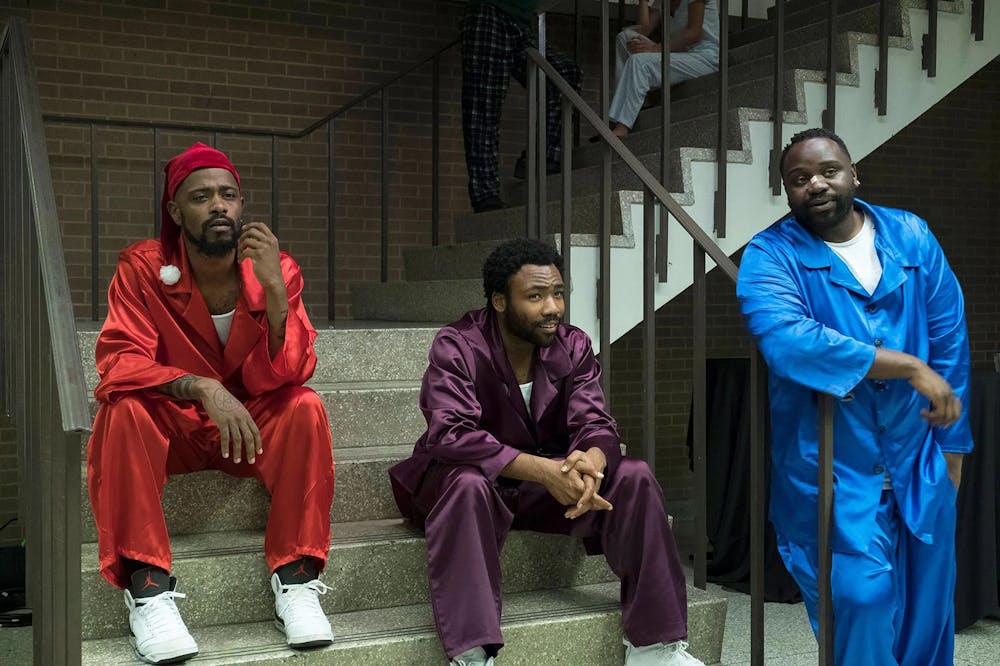The first episode is a dreamscape retelling of the tragic story of Devonte Hart, a 12-year-old Black boy who was photographed hugging a police officer that later went viral in 2014.
As the image circulated on Twitter, reports revealed that it may have been staged by Jennifer Hart, the white woman who adopted him. In 2018, Hart drove her wife, Devonte Hart and his five other Black adopted siblings off a cliff.
Following their deaths, numerous reports surfaced that Jennifer and Sarah Hart physically and emotionally abused their adopted children.
The episode shows the fictional version of Devonte Hart transition into a new home after a fight with his biological mother. He quickly grows suspicious of his adoptive mothers who undercook their food, don't use washcloths and make their children work the garden for the produce they sell.
The murder-suicide happens after the Hart character kills a social worker who visited the home.
The body of Devonte Hart was never found, but he is presumed dead. In the imagination of “Atlanta” writers and show's script, he manages to escape the car before it crashes and returns to his mother. The episode blends horror and reality, which serves as a figurative and literal nightmare that wakes Earn from his sleep.
After Earn wakes up, there is no return to normal in the second episode. As he and Paper Boi prepare for a show, they find themselves in the midst of the celebrations for Sinterklaas — the Santa Claus of the Netherlands.
Sinterklaas is the same jolly, gift-giving bearded man we are familiar with, but in the Dutch tradition, he is accompanied by a helper named Black Pete. Adults and children that dress up as Black Pete don a layer of blackface, an afro wig, large red lips and golden hoop earrings.
With our own history of minstrelsy and blackface in America, it’s unsettling to see the practice so normalized, no matter the context. This happens to Earn and Paper Boi, who encounter people in blackface on the street, in their hotel room and in the concert venue, which is filled to the brim with white faces painted black.
In an especially hilarious and poignant moment, the concert promoter, enraged after Earn tells him that Paper Boi refuses to perform, chases him out into the venue lobby and fights a white man in blackface that he mistakes for Earn.
The two episodes, while horrifying and strange, are not fantastical. They are steeped in very real — albeit exaggerated — situations that highlight the absurdity and awfulness of racism. “Atlanta” mixes ridiculous, scary and uncomfortable moments to create a surrealist depiction of racism at its most mundane and extreme levels.
Surrealism is a genre that plays with the unnatural and incongruous, and has been incorporated in film, art and even literature. “Atlanta” has been placed in a cohort of surreal movies and TV shows, including Jordan Peele’s “Get Out” and “Sorry To Bother You” — both of which starred cast member LaKeith Stanfield.
To get the day's news and headlines in your inbox each morning, sign up for our email newsletters.
The show balances the horror of the former and bizarre of the latter and embeds it in a seemingly everyday experience of its Black characters.
These media texts have also been called the resurgence of Afro-Surrealism, which writer and activist Amiri Baraka describes as the combination of surrealism and “the Black aesthetic in its actual contemporary and lived life.”
Afro-Surrealism or Black Surrealism finds its roots in the Black Arts Movement of the 1970s, and brings together the terrifying, mystical and comedic to allow artists to critique the illogical, monstrous and hilarious elements that animate racism.
Devonte Hart’s story was frightening — and is even scarier because it actually happened. Incidents of blackface are less frequent now, but imagine a city where the practice is so normalized that you see it everywhere you turn.
And what is most unsettling about the episodes is how much truth there is to them.
The third episode — released last week — was not as striking as the first two, which felt akin to a fever dream, but it still carried the essence of Black Surrealism that I think Glover and his team wanted to achieve.
I’m interested to see how the remainder of the season goes and I’m down for the ride — strange and all.
@_zarialyssa
opinion@dailytarheel.com




